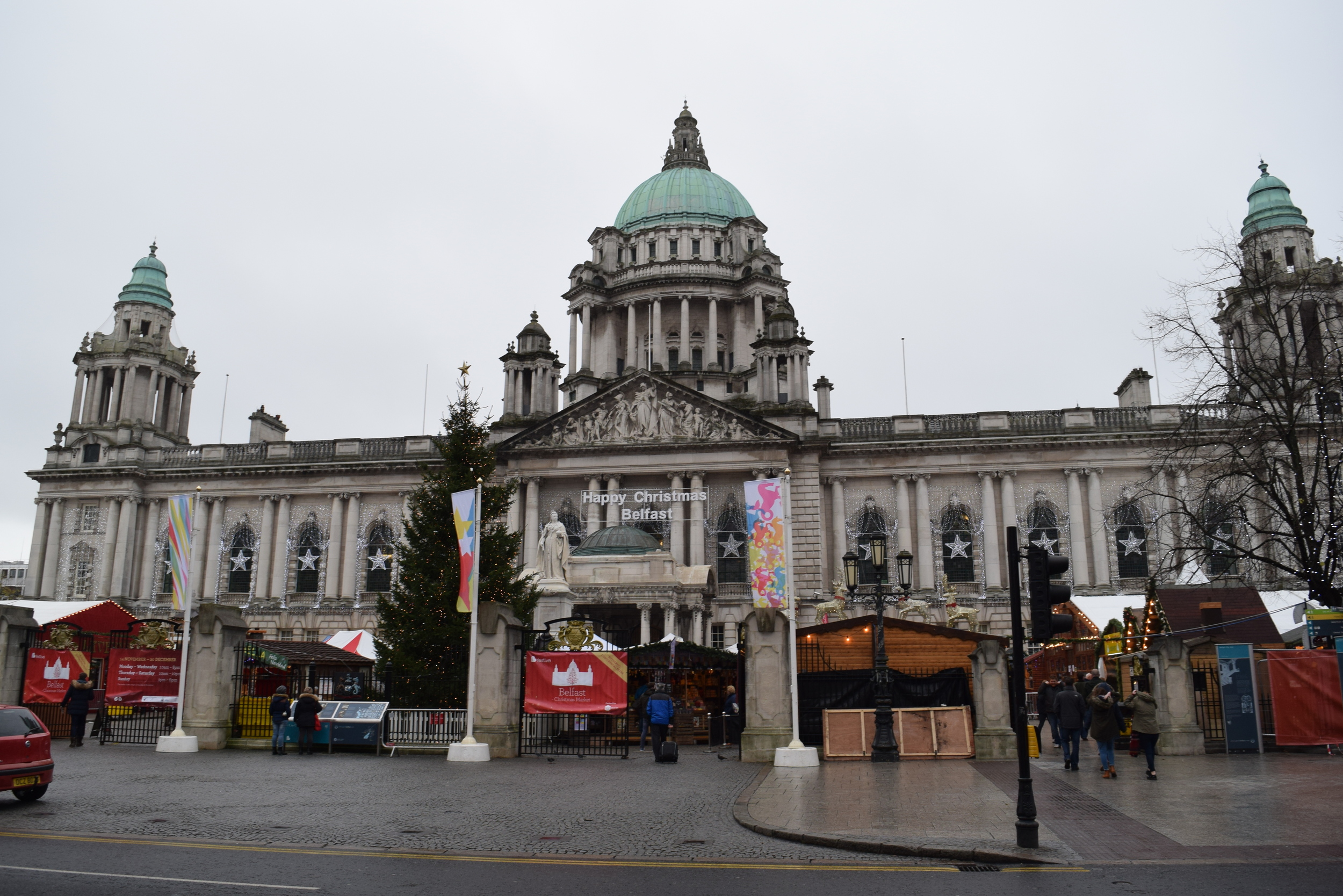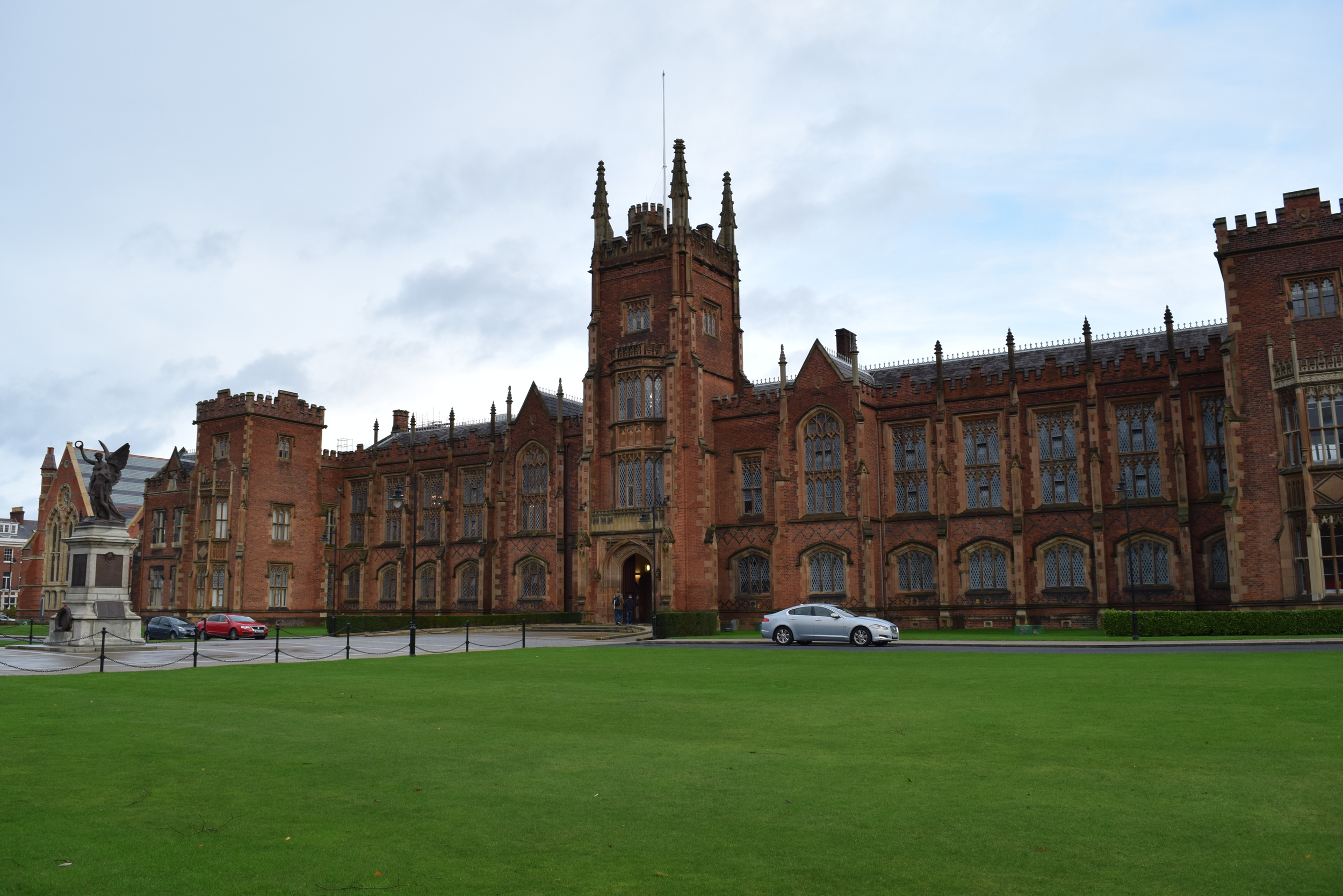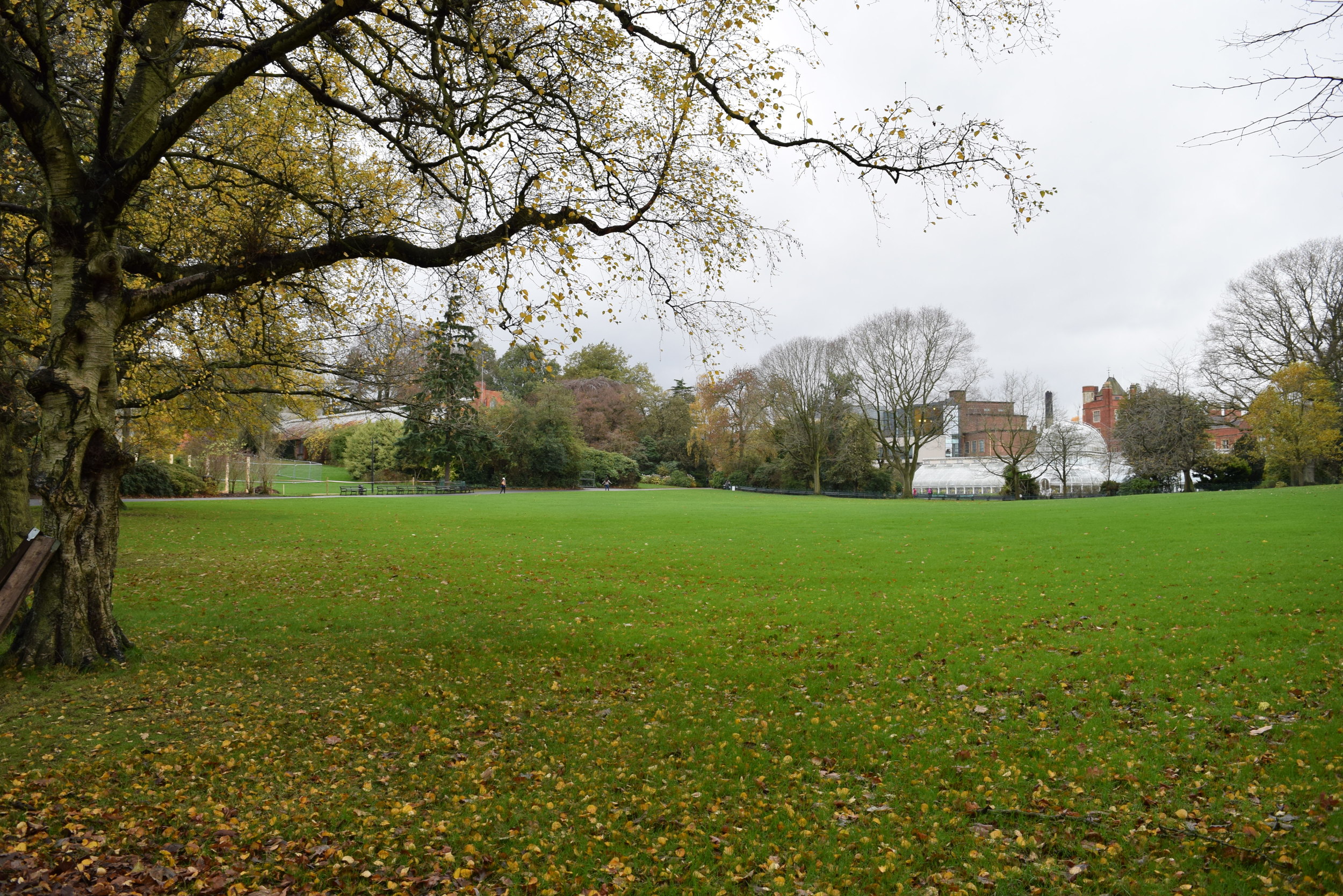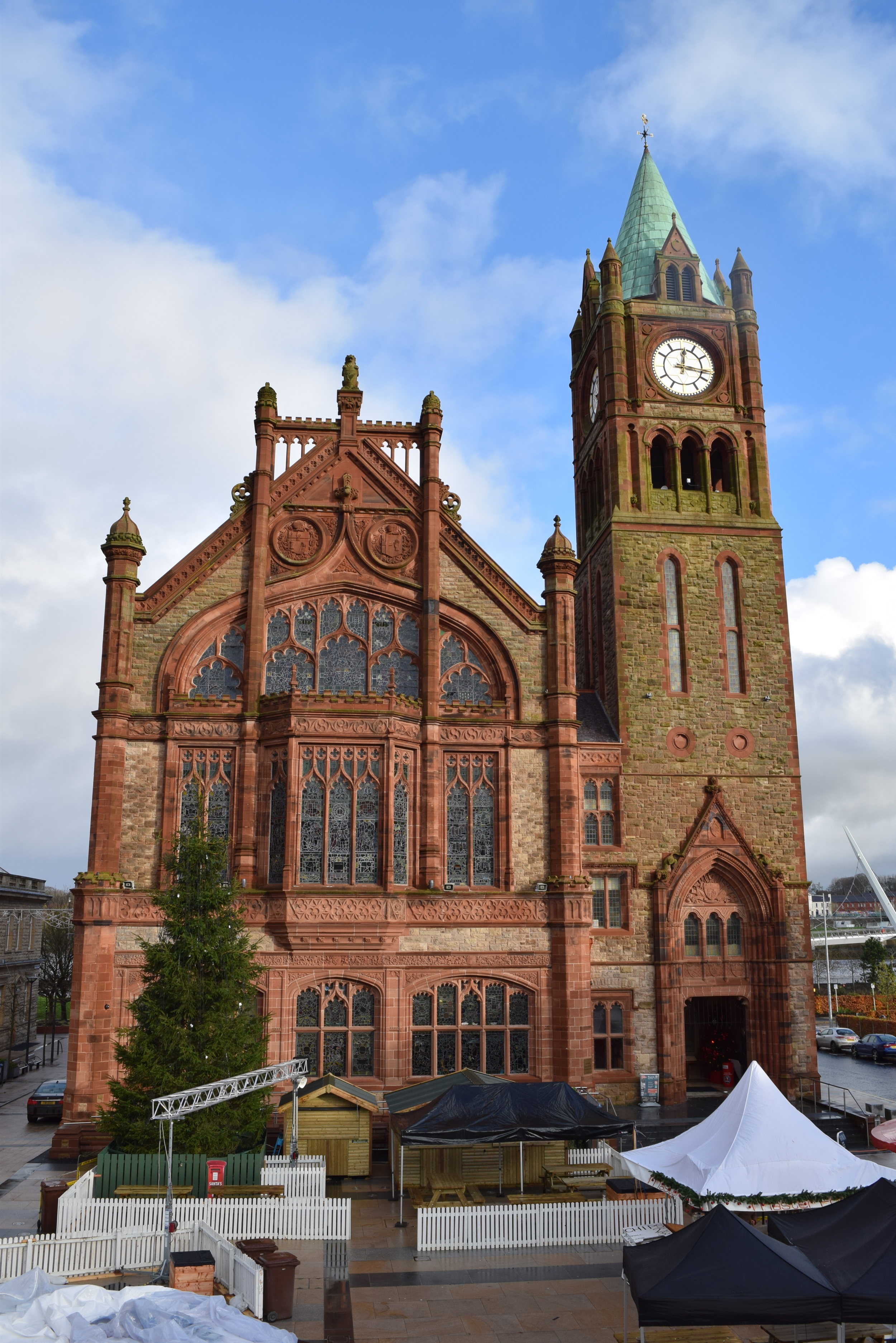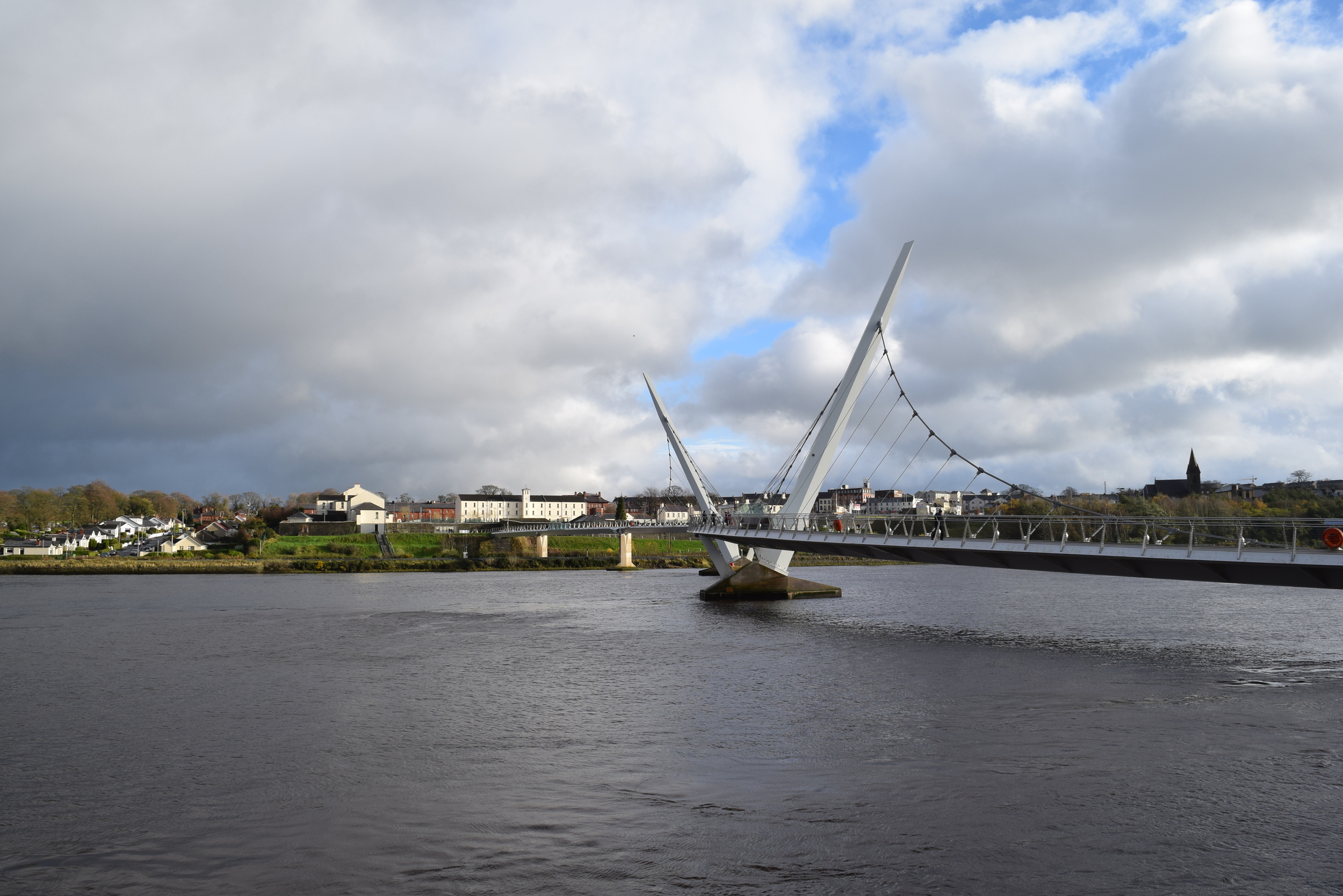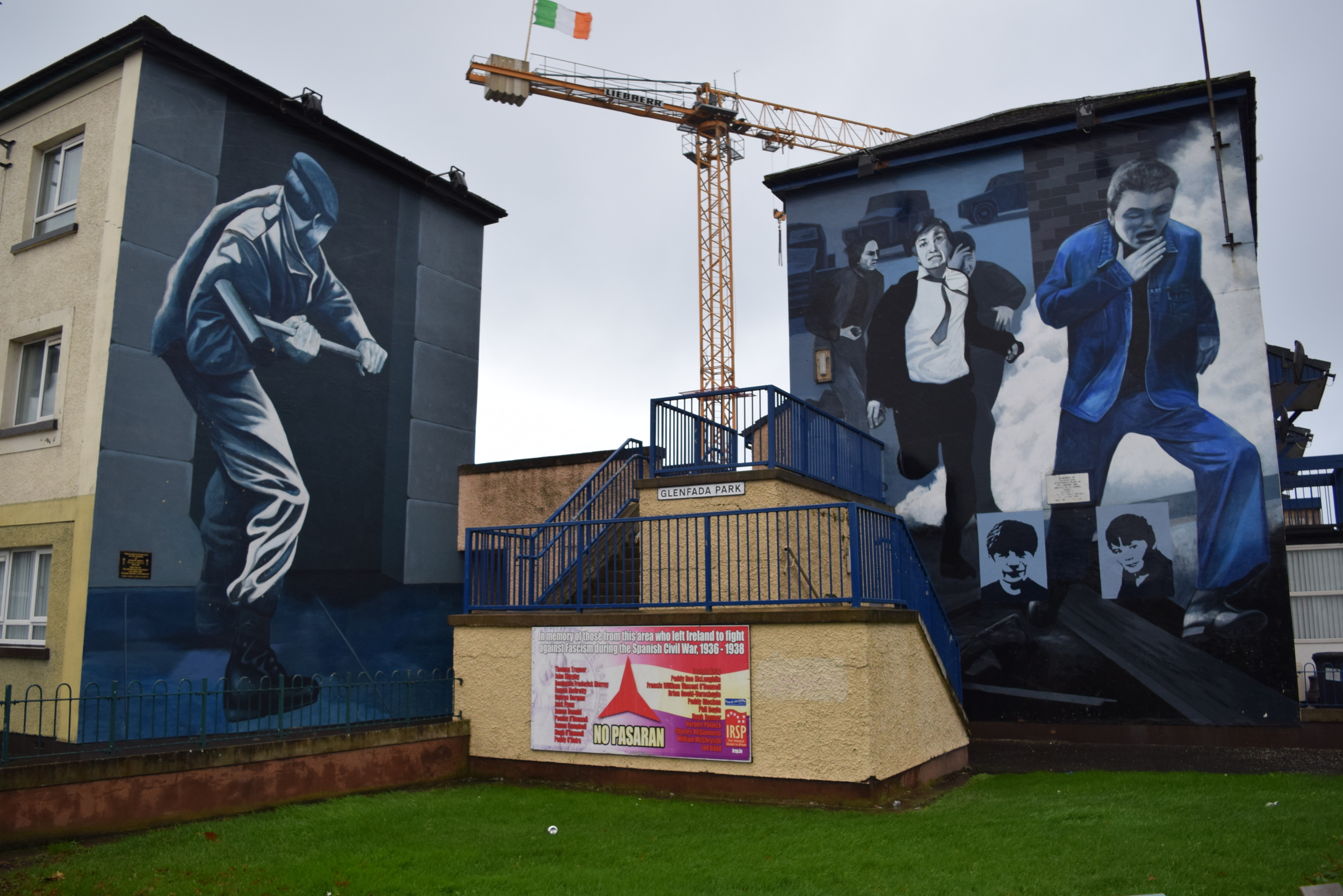It was announced today that for the second year in a row the Ibrahim Prize will not be awarded. The award recognizes democratically elected African leaders who have demonstrated skilled leadership in office and, importantly in a region known for long-serving autocrats, allow for the peaceful transition of power at the end of their terms. In the decade since it was launched, the award has only been given to four individuals.
The Need for a Basket of Dismals in the White House
In light of the expected naming of Kevin Hassett to head the White House Council of Economic Advisers, it is important to remember the value of economists (and other eggheads more broadly) in policy discussions. During the 2016 campaign and his subsequent administration, Donald Trump has been consistently insulated from serious academic economists in a way that stands out from past candidates and presidents.
Reading Links
2/26
More links for your reading pleasure:
How Federal Cash Harms State Governance (Real Clear Policy)
Since the federal government covers states' costs in the short- and medium-terms under the ACA, it seems sensible that they would expand their Medicaid coverage. Largely lost in the debate has been the long-term costs to states of Medicaid expansion. Undoubtedly, states will be hesitant to go back to pre-ACA levels of Medicaid coverage once the federal drip dries up. This leaves a higher spending burden without a matching increase in revenues. (This assumes that Congress would not decide to provide more funding to states.) This is the ratchet effect that occurs with temporary flows of money from a higher level of government to a lower one- though a similar effect has been observed with government spending in general since World War II. This should not be construed as an argument for the repeal of the ACA, it just happens to be a prominent example, but rather an argument for reconsidering the financial relationship between federal, state, and local governments. Essentially, our current system is not as efficient as it could be. We should be able to achieve the same goals (a wide social safety net, good infrastructure, etc.) with much less waste using a different framework. Efficiency, however, has never been the strong suit of government.
Academic Drivel Report (The American Prospect)
Having spent some time recently in an academic environment, I can say that much of what is produced by academics really is drivel with no meaning outside of their silo. On the other hand, a lot of academic production is great and humanity is richer for it. The issue is that the drivel gives a bad name to academic work in general and turns society at large away from engaging with the good products of academia. Not all ideas can expressed in the most simple of terms, but ideas should not depend on nonsensical obfuscation to appear valid.
Romer and Romer on Friedman (Conscience of a Liberal)
Krugman condenses the detailed criticism of Sanders' economic projections by Romer and Romer. (The actual document is linked in Krugman's post.) One of my biggest issues with Sanders and his supporters is that seem content to ignore or manipulate the full costs of his proposals. On their face alone, the projected growth numbers seem to warrant scrutiny. Now that scrutiny has been applied they simply don't hold up. There would be economic losers under Sanders' policies beyond the 1%. Perhaps that is acceptable, but we should not be led into fantasyland thinking. The Sanders campaign has prided itself on Bernie's integrity and frankness, but this has been a consistently misleading point, though by this election cycle's standards this is a very minor transgression.
How Biden killed John Roberts's nomination in 1992 (Washington Post)
This goes back to what I wrote the other week. Clearly obstructionism is a bipartisan practice. Republicans can fairly point fingers to Biden for doing this 24 years ago, but that does not mean that they should follow that example. It might be worth mentioning that as far as SCOTUS nominees were concerned, the obstruction was hypothetical.
Bonus Video:
Is this the saddest debate moment of the debates?
Justice Scalia is Dead- Now What?
2/14
The passing of Justice Antonin Scalia looks to have some very interesting consequences in the coming months. As the longest serving justice at the time of his death and the leader of the court’s right flank, Scalia leaves behind a strong legacy. Few Supreme Court Justices provoke as strong reactions from the public as he did. Though the other three reliable conservatives on the court (Roberts, Alito, and Thomas) all voted with Scalia at least 86% of the time, none gets the same fawning from conservatives (particularly Roberts at this point) nor the disdain from liberals that Scalia attracted. He was looming figure and one that was obviously intelligent, principled, and influential. He will continue to live on as an intellectual and philosophical giant among conservative legal circles.
Senate Majority Leader Mitch McConnell has stated, ““The American people should have a voice in the selection of their next Supreme Court Justice. Therefore, this vacancy should not be filled until we have a new president.” This is absurd on its face. It is the president’s constitutional duty to “nominate…judges of the Supreme Court.” While this is done with the “advice and consent of the Senate,” there is no reason for a senator to exhort the president to maintain a vacancy on the Supreme Court for what would certainly amount to over a year. Further, the Supreme Court is not the People’s Court. By design, the Supreme Court is the least democratic institution laid out in the Constitution. It is a check on political branches that are beholden to the people. To suggest that for this nomination the public deserves any more input than they have always enjoyed is to dismiss Article II of the Constitution and more than two centuries of precedent. Informed voters should know that the Supreme Court is an incredibly powerful institution with the ability to change the functioning of the country overnight. Any abortion foe or gay marriage advocate is well aware of this. When voting in a presidential or Senate election voters should consider the secondary or tertiary impacts of their votes, the constitution Supreme Court being one of these. Still, the Supreme Court always has been distant from the whims of voters and ought to remain so. It is irresponsible for a six term senator to propagate any myth about the people deciding what the court looks like.
The process of replacing Scalia on the highest bench is going to be dramatic. Despite Mitch McConnell’s fantasies, I think everyone can anticipate President Obama naming a nominee. The real question is whether President Obama will name someone who can satisfy the Senate.
Republicans should be wary of overplaying their hand and delaying until after the elections. While the have the ability to be absolutely obstructive now, they do stand to lose the both the Senate and White House in November. The general election is months away, but I remain skeptical of the GOP’s chances to get their man, whoever that may be, in the White House. Prediction markets agree with me on this point (or maybe I should say that I agree with the markets). Of course, this is subject to change. The primary process is long and we are no closer to knowing the general election matchup than we were a month ago. The emergence of a strong consensus Republican candidate and further erosion of support for Hillary Clinton could lead to a change in parties in the executive. As it stands though, the Republicans face an uphill battle. Retaining the Senate seems more realistic, but here the Republicans are stuck defending 24 seats while the Democrat defend only 10. If Obama names a squishy conservative or a moderate to the court and Republicans block it and subsequently get drubbed in the election by the Democrats, they could end up looking particularly foolish. A new Democratic president with a Democratic Senate could then install a liberal Justice that would fundamentally shift the Supreme Court.
The Supreme Court with Scalia was quite balanced though right-leaning. With four reliably liberal conservatives and four reliable conservatives, no ideology can be seen as dominating the Roberts Court. President Obama will seek to push the Court to the left. It is unfathomable that he would nominate a Scalia clone. However, I would be similarly surprised if he nominated a hardened liberal judge. With the current Senate makeup, he stands no chance of getting a liberal dream pick through. It would seem that for Obama his best hope is to pick a nominee that will satisfy at least a sizable minority of Senate Republicans and not scare away Democrats. Nonetheless, we can anticipate that he will push for a leftward shift. When replacing a Justice near one bound of the ideological spectrum, any nominee closer to the mean will be seen as creating a shift.
I am curious to see how President Obama plays this, whether he opts for a politically pragmatic pick or shoots for the moon. The last significant shift in the Supreme Court came under George W. Bush when Sandra Day O’Connor’s seat was taken by Samuel Alito, transforming a swing vote into a conservative spot, though even this was not a revolution. Justice O’Connor, like Anthony Kennedy, could viewed as a conservative, albeit a squishy one. My money would be on Obama to name someone in this mold, though perhaps someone who is reliably pro-life as means of assuaging conservatives. In any case, this will create ripple effects through the election cycle as Supreme Court nominations gain the spotlight as a consideration when voters pick candidates.
Donald Trump: Not A Friend Of Veterans
2/9
My friend David Reese has written about the use of veterans, specifically physically disabled ones, as political props. He’s also written on the problems associated with empty statements of support for veterans. It’s insightful stuff and I have been thinking of it a lot as the election season has kicked off. Politicians love to use veterans to achieve their goals. Like a lot of politicking, it can be painful to watch, but in most cases it is just the way the game is played. However, Donald Trump has crossed into new territory in using veterans as political tools with his “fundraiser” after he decided his feelings were too hurt for the Iowa debate. Trump’s event was an egregious attempt at parlaying the broad support in society for veterans into political gain once Trump realized he had made a strategic mistake in the Iowa campaign. Of all the candidates this cycle, Trump has demonstrated the worst understanding of veterans and veterans’ issues. Let’s dispel once and for all with this fiction that Donald Trump is an ally of veterans.
“I always felt like I was in the military.”
-Donald J. Trump
I don’t hold it against Trump that he didn’t serve in the military. Most Americans have not served in the military. It does not make them lesser Americans. Veterans do not hold a special class of citizenship, nor should we. My generation of veterans made a choice to serve. For me it was the right choice and I am proud of it. A lack of military service is not something to be ashamed of, however claiming that you were pretty much in the military is demeaning to those of us who actually wore the uniform. I don’t care that you didn’t serve, just don’t act as if you did.
Further, Trump has degraded the actual military service of others for political gain. Mocking John McCain for having been a prisoner of war shows a casual disregard for the realities of combat service. At least the Swift Boat Vets were actually in Vietnam. His understanding of the effects of roadside bombs is also distorted. IEDs were a signature feature of the conflicts in Iraq and Afghanistan. If all they brought about was a “little ride” when a Humvee struck them the death toll in those conflicts would have been significantly lower and countless cases of traumatic brain injury, amputation, mutilation, and other maladies would have been avoided.
In his capacity as a businessman Trump also has a history of being not so friendly to veterans.
Trump’s event in Iowa was a hasty attempt to use a politically sympathetic group as cover once it became clear that Fox News was not going to give in to his bullying. His record shows his cluelessness towards military service and veterans issues. The event itself had very little substance with regards to veterans’ issues and was just another chance for Trump to brag about how great a guy he is. In the events wake Trump has attempted to use veterans as props and thankfully they have declined. Trying to assist charities for veterans should be an apolitical act and groups are right to refuse to be dragged into campaigning.
Stating you support veterans does not make it so, especially if you have a tendency to distort and misunderstand service in the ways Trump has. I would say that this stunt lowered my respect for Trump, but that is simply not possible at this point.
Voicing faux concern couched in anti-immigrant rhetoric does nothing to help struggling veterans. Spreading misinformation about the VA does not fix its problems. Writing what surely must be the classiest, most sophisticated check ever written for veterans’ groups does not make you a great American. If you want to make America great for veterans use your platform to actually identify problems facing them and put forward intelligent policy prescriptions. Bombing the “shit out of” ISIS or Iraq or any other group or country for that matter is not a serious foreign policy plan and it does not lead me to believe that service members, future veterans, under Commander-in-Chief Trump would be valued. Valuing veterans begins with valuing service members and not blindly planning to place them in danger because it gets applause at a campaign event.
Donald Trump is not a friend to veterans. He’s a child contemptuously parading as a serious candidate. His support of veterans is superficial, opportunistic, and dismaying. America’s veterans deserve better.
Donald, feel free to let me know how much of a loser I am for not properly appreciating cynical rhetoric and theater.
Northern Ireland Links (Plus More Photos)
12/30
I realize that Northern Ireland and the conflict around it gets quite convoluted at times. In my last post I probably employed certain phrases and discussed certain issues that I didn't bother to define. To help your understanding here are a few links that can aid in enlightenment.
CAIN (Conflict Archive on the Internet): Probably the best one stop resource for information on the conflict in Northern Ireland. Check it out for background.
Good Friday Agreement: Commonly viewed as the agreement to end the Troubles. The process behind was drawn out and nearly totally derailed on several occasions. It was not accepted by all paramilitaries leading to continued violence by some dissident groups. If you have hours of free time consider watching the BBC-produced series "Endgame in Ireland" (available on YouTube).
Should Paramilitary Murals in Belfast Be Repainted? Questions of how to deal with one of the most widely known visible legacies of the Troubles. I'd argue that they are integral for understanding how participants and community members understand the conflict and that eliminating them at this time would do little to heal the sectarian chasm.
The Siege of Derry as retold by a unionist website- centuries later the events still resonate.
Derry/Londonderry: The politics of the city's complicate even simple news coverage
Here are a few more photos of Belfast and Derry:
Albania's Communist Period: The Past and Its Legacy
8/2
It’s possible, likely even, that my first exposure to Albania came from reruns of The Simpsons. It might sound a little ridiculous, but it’s not like Albania is a topic that comes up much in elementary school. The Simpsons, however, were a staple of my youth and an education itself. The basic plot of “The Crepes of Wrath”, an episode from the first season,” is that Bart is sent away to study abroad in France after proving too much for everyone to handle. The Simpsons family receives an exchange student of their own, Adil from Albania. While Bart is working as slave for two horrible Frenchmen at their winery, Adil is the perfect child that Bart could never be. Adil’s perfection is facade, as he is actually a spy for the communist Albanian government. He is caught by the FBI sending plans for the nuclear plant back to Albania and sent away. I don’t know when I first saw this episode, though I do remember it well, mostly for Bart’s struggles in France. By the time I would have first seen it, Albania was no longer communist and things would have been dated. I wouldn’t have cared, the references would have gone over my head anyway. At least I learned that Albania was a place and I got a half hour of entertainment.
From 1945 to 1992 Albania was a communist state. For the first 40 of those years the country was run by Enver Hoxha. Even by the standards of communist states, Albania was isolated.
If you’ve seen the Spike Lee joint Inside Man, then you’ve heard Enver Hoxha’s voice. A recording of him is a plot device. If you haven’t seen the movie and don’t know what I’m talking about, go out and watch it. Anyway, Hoxha’s voice and likeness blanketed Albania during his rule and he had total control of the country.
Hoxha, like most communist dictators, is an intriguing figure. He was born in Gjirokastër in 1908 in the house that now holds the Museum of Ethnography. He later went to France for university on a scholarship. Like Ho Chi Minh, Pol Pot, and many other communist leaders, Hoxha’s time in France proved to be a political education and he became involved in communist activity.
Birthplace of Enver Hoxha (now the Museum of Ethnography)
He returned to Albania and played a role in the founding of the Albanian Communist Party in 1941. While Albania was occupied by Italian and German forces during the war, Hoxha was a leader of partisan forces. By the war’s end the communists were the dominant political force in the country and Hoxha, as their leader, naturally came to lead post-war Albania.
He put the country on a strongly Marxist-Leninist path. Confiscating land, implementing massive health and education programs, and silencing dissent. Hoxha had a close relationship with Stalin and the USSR. Once Stalin died and the USSR shifted course, Hoxha held steady to a Stalinist ideology and split from the Soviets. He looked to Maoist China for guidance and put in place typically disastrous policies. The isolation from Russia meant that its primary outlet for goods was no longer an option. Combine this with the already asinine economic policies of communism and it makes for struggle. When Mao died in 1976 and China began to reform Albania was left isolated.
Hoxhaist Albania was marked by hardline economic and social policies. Religion was banned. The possession of religious symbols, such a cross, was enough to warrant a visit from the authorities. Churches, mosques, and other religious buildings were destroyed. Gjirokastër provides one example of this. Over a dozen mosques existed in the city prior to Hoxha’s rule. All but one of them were destroyed during the communist period. The one that was allowed to remain standing was utilized as a training center for circus acrobats because of its high roof. Today the building is still standing and back to serving its original religious purpose. The Albanian population never quite returned to practicing their religions as before. Albanian society remains quite secular.
The mosque in Gjirokastër
Gjirokastër houses several other physical reminders of the communist regime. Under the government’s industrialization plan Gjirokastër was the site of several factories. The primary factory produced metal goods such as tableware and cigarette cases. Leftover sheet metal from the factory can be spotted across the city being utilized as fencing, the obvious outline of forks, knives, and other items stamped from the metal clearly visible.
Factory metal being reused
The Hoxha regime was extremely paranoid about the threat of foreign invasion and had over 700,000 bunkers constructed across the country. I saw a few of these while walking around the valley near Gjirokastër. Though many are crumbling, I stumbled on one that had a new life as a garden shed.
A typical bunker near Gjirokastër
A bunker being reused in a garden
A beat-to-hell American plane is on display in one corner of Gjirokastër Castle. It’s a bizarre because it feels like it was only placed there as an afterthought. There does not seem to be any compelling reason for the plane to be in its particular location. However, it has an interesting history behind it that goes to show the regime’s paranoia. In 1957 the Italy-based plane was flying in the area when it developed mechanical problems and made an emergency landing in Tirana. The Albanian government claimed that the plane was spying on Albania and this was used as proof of the outside threat to the country. What the plane was actually doing is unclear, though the spying claim seems more an invention of the Albanian government than one based on fact. Even the sign at the museum references this ambiguity- “American Spy Plane(?)”.
The alleged spy plane of Gjirokastër Castle
Tirana, then as now, was the capital of Albania and the center of political life. Hoxha and the communist elite lived in a portion of the city known as Blloku (the Block) that was off limits to the general population. It is a trendy neighborhood these days, but still holds reminders of the regime. Hoxha’s residence can be seen, but not visited. From the outside it appears to be of a smaller scale than might be expected of a man who ruled the country for 40 years. By Albanian standards it must have been highly luxurious, but by dictator standards it seems fairly modest.
The back side of Enver Hoxha's residence
The Checkpoint Memorial to Communist Isolation can be found in a park in Blloku. A bunker, a section of the Berlin Wall, and concrete supports from the mine of a forced labor camp remind passersby of some of the consequences of authoritarian communist rule.
Checkpoint Memorial to Communist Isolation
Skanderbeg Square, the center of the city, used to be the location of several communist statues. Lenin, Stalin, and ,of course, Hoxha held places of honor here. In fact, the statue of Stalin remained until 1990. It was, perhaps, the last public Stalin statue located outside of Stalin’s hometown of Gori, Georgia. The statue of Hoxha was toppled by a mass of citizens in early 1991. It was a major moment indicating the coming end of Albanian communism. Statues of Lenin and Stalin are hidden behind the National Gallery of Art and I was able to look at them up close. They have certainly seen better days.
Communist statues in Tirana
Uncle Joe trying to hail a cab
Looks like Lenin could use a hand
One of Tirana’s architectural landmarks is the Pyramid. This monstrosity is a few blocks from Hoxha’s residence. Designed Hoxha’s daughter and son-in-law, it was built after the dictator’s death to house the Museum of Enver Hoxha. It didn’t serve long in this capacity. With the fall of communism it was converted into a conference center, but that concept was later abandoned. Its only occupant is a television station in the basement. It sits covered in graffiti, windows smashed, stripped of anything of value on its exterior. A physical representation of the legacy of a man and philosophy that kept the country isolated and impoverished for so long.
Tirana Pyramid
The transition to democracy and markets was bumpy for Albania. The communist party effectively surrendered control of the political system in 1990 by announcing that free elections would be held in 1991. The Communist Party was flogged in these elections and ones that followed in 1992. It might appear that people do not like living under repressive regimes which deny them basic liberties and keep them poor.
The economy moved to a market system and, for the most part, was successful in early period of liberalization. However, in one of the most episodes in any post-communist transition, a majority of Albanians fell victim to pyramid schemes which wiped out their savings and devastated the economy in 1997. The government did very little to control these schemes even after becoming aware of their existence. The country descended into chaos once the schemes collapsed. The prime minister resigned and a new government was eventually elected, however during this time over 2,000 Albanians died violently. The economy normalized once order was restored and growth returned.
As I write this, Albania is a functional democracy. It feels like Albania has escaped the shadow of its communist past and put the turbulence of 1997 behind it. Reminders of 47 years of communist rule remain, but they don’t dictate the country’s present state, instead serving as reminders of how not to do things. My brief exposure to the country has been positive and it makes me feel optimistic about its trajectory. I know I will be keeping any eye for out Albania in the news in the future.
Links Worth Clicking On:
IMF article on the pyramid schemes
A great primer on what they were, why they appeared, and how they grew. A little wonky, but nothing beyond some standard economic concepts.
Contemporary article on the 1997 unrest (NY Times)
Greece Reading
Links to more reading related to yesterday's post
On the economic crisis
Collection of coverage from The Economist on the crisis
The effect on US importers of Greek goods (NY Times)
Enjoy Greek wine or olive oil? You may have a harder time getting those and other Hellenic goods as Greek exporters struggle to import inputs, such as bottles from Italy.
Poorer European countries are not happy about paying to bail out Greece (Guardian)
On refugees
How they're getting to Greece and where they're headed (Economist)
Greekonomics
7/29
Zero euro coin graffiti
Two and a half millennia ago Greece was the Western world. Today it is the center of attention once again, but for reasons that will not be a source of pride for generations to come. While Europe broadly faced a financial storm in recent years, Greece has faced a hurricane. Turn on the news or open the newspaper and any report from Greece is likely to be bleak. Years of poor policy have come to a head. In this post I’ll give a rough overview of the situation and my observations from my brief time in Greece. You can skip over the wonky stuff as you like, it’s nothing new or groundbreaking. I just wanted an excuse to write about economics.
Greece’s Situation
GDP per Capita (PPP) of Greece, the eurozone, and the US between 2007 and 2014
When Greece joined the then-European Community (now European Union) it was the poorest member state. Though it developed in the following decades, it remains poor compared to its EU brethren.
The creation of the euro was supposed to impart some fiscal discipline to member governments by forcing them to abide by certain limits on deficits and debt. Certain preconditions had to be met before joining the currency union. At the time of the euro’s creation Greece appeared to meet these requirements. Now it is clear that they were not prepared and that much of the economic data gathered by the Greek government was inaccurate.
Currency union brought a huge inflow of foreign capital to Greece. With foreign money coming into the country, the government could maintain high levels of spending. Foreign capital flows shut off once the global recession hit, meaning that the government could no longer finance such large deficits.
Greece's unemployment rate skyrocketed, productivity declined, and a vicious economic cycle began.
Assuming Greece would have been hit by a financial crisis no matter what, their monetary policy options differ depending on whether they have their own currency, the drachma, or the euro. With the euro their options are extremely limited. The European Central Bank (ECB) sets policy and does so based on the needs and desires of the whole eurozone. Germany, having the biggest economy in Europe as well as having had the central bank with best reputation for fighting off inflation, holds the most power within the ECB. With the German economy performing relatively well and Germany being the primary creditor to Greece, the ECB’s policy motivations are not necessarily in line with those of Greece. Thus, Greece has very little ability to address its problems through monetary policy as a eurozone member.
In an alternate universe where Greece faced this economic crisis under the drachma a set of tools would have been available to address this. The central bank could unilaterally devalue their currency. Making the drachma weaker against foreign currencies would have the benefit of making Greek goods cheaper for foreign buyers. Greek exports would rise and a current account surplus would help to finance the government debt.
Between 2010 and 2014 Greece received two bailout packages from the ECB, European Commission, and International Monetary Fund, together known as the Troika, totalling 240 billion euros. These bailout packages had several conditions attached to them aimed at addressing the structural problems in Greece’s economy. Austerity measures were predictably unpopular with the Greek populace.
After several political and economic developments It became clear earlier this year that Greece would still be unable to make their debt obligations and some sort solution had to be reached in order to avoid default. The Troika proposed a third bailout package and further austerity.
On July 5 a referendum was held in Greece on whether or not to accept the proposed bailout package. Greeks had to choose two scenarios, neither of which was pleasant. By voting “Yes” they would accept the proposal of the Troika, avoid default, stay in the eurozone, and accept more cuts to services. Voting “No” meant rejecting austerity, but accepting uncertainty of the next step. Supporters of the referendum posed it as a question of whether or not to remain in the EU and eurozone, both of which the majority of Greeks support. For many, a “No” vote was seen as an effort to retain national pride, or at least a way to say “Fuck you” to the creditors and austerity. The referendum was defeated handily 61 percent to 39 percent.
A banner urging "No"
As convoluted as this summary may be, it’s still extremely simplified. Greece has been in a turbulent situation for years now. If I included every detail I’d never have time to write anything else.
Regardless of the specific path Greece follows from here, the economic situation is rough. Over one quarter of the labor force is unemployed. Production is still way down. National debt is still incredibly high. There is no clear path forward. The Greek political situation is messy as the far left Syriza party controls the government and they have demonstrated a failure to effectively grasp either economics or politics. A week after the referendum the Syriza government accepted a new bailout package with even steeper cuts to pensions and higher taxes than the one rejected by the referendum. It appears with this third bailout that threat of Grexit has been put off for now. Greece still needs a lot of help. Much of this is their own fault. However, creditors should recognize that a significant restructuring of Greek debt is likely in everyone’s interests. If properly handled, the consistent uncertainty and chaos that has become the norm with Greece and has infected Europe can be mitigated in large part.
The Unseen
I won’t pretend that I truly understand the sentiment of the people in Greece or even all of the economic and policy factors at play. I caught a glimpse of Greece as it faces several challenges. I can only describe what I saw and what interpreted. For all I know, I could way off target on some of my judgments.
On Kalymnos the effects economic crisis aren’t immediately obvious. I have no reference point to work from, but my immediate sense was that tourism was slow compared to years ago when the economy was functioning. This was confirmed when I talked locals at stores and restaurants.
“You should have seen it seven or eight years ago. There was nowhere to sit around here. So many people visiting. It’s bad now. Really bad compared to before.”
That’s what one restaurant employee told me as I ate breakfast near the ferry port. Restaurants line the waterfront in the area, but none of them was near being packed. This was true just about anywhere. Sure, some restaurants got fairly busy in the evenings, but there were more near empty ones than I could count. The pain of the economic crisis was not immediately obvious on Kalymnos. No doubt that business owners feel it, but it’s much harder for the tourist to see the problems.
The Seen
The economic issues are visible in Athens. The guidebook calls the city “edgy”. I suppose that’s fair, but maybe a tad polite. There is graffiti everywhere. The locals say this is nothing new, the amount has just increased. The streets are dirty. Protests are a regular occurrence, though I wasn’t witness to any. The police presence is quite high. Like many things, I don’t know if this is normal or they’re expecting more activity with the recent bailout talks.
A common spray paint tag across the city is “ΟΧΙ”. “No”. No to the referendum. No to austerity. No to creditors. Three letters to be found just about anywhere.
"OXI" near the National Gardens
The anarchist circle-A is another symbol peppered everywhere. Not surprising in a city covered in spray paint.
"I am an anarchist, don't know what I want, but I know how to get it"
Posters from the KKE, the Communist Party, has posters across the city. Once outlawed under the military junta, the KKE has become the fifth most popular party in Greece. Posters for an event in May celebrating 70 years since the defeat of Nazi Germany still remain posted. It’s easy to see them drawing new meaning following the defeat of the referendum. Another defeat of the Germans by Reds. I don’t know if the KKE sees it this way, but if were them I’d be running with this concept. The left has been quick to bring up creditor Germany’s Nazi history.
Celebrating 70 years over fascism
Anti-fascist stencil
In a case of another political philosophy being pulled from the rotting garbage dump of history, Golden Dawn, modern fascists and antagonists to the KKE are the third most popular political party in Greece. Their presence is less prominent in the streets of Athens. However, reactions to them are everywhere. Anti-fascist and anti-Nazi symbolism is easy to find. Once again communists and fascists are having at it.
There are lots of people to be seen during the day in Athens not engaged in any productive capacity. It’s hard for me to say what portion of these people are unemployed and what portion are simply taking a break. I’m curious, but enough to go around asking random people on the street their employment status so I can post about it on my blog.
There are obvious homeless on the streets. It’s not a shock. Any large city in America has this problem. Like a lot things, locals just say it existed before and has just gotten worse with the crisis. Homelessness has exploded in Athens lately and created more issues for the system to handle.
Another Crisis
Coming to and from Kalymnos I had a few hours in Kos as I waited to change ferries. Kos is quite a bit larger than Kalymnos and more heavily trafficked. There are a few signs of the economic situation, but another crisis is what grabs attention on Kos.
While Greece has been weathering their economic crisis an overflow of migrants has simultaneously appeared. They come from Syria, Iraq, Libya, and beyond. Greece has become the top destination in Europe for refugees.
Groups of these immigrants gather near the ferry port in Kos. Having escaped physical dangers in their homelands they still face incredible insecurity in their new locales. Greece does not know how to handle the influx of people. Even if it did, there remains the issue of them having the means to handle it. Their presence is very visible. Walking to Nerantzia Castle, built by the Knights Hospitaller to protect Kos from outsiders, the refugees line the street and park. There is the unmistakable smell of human shit in the shadow of the tree beneath which Hippocrates once taught medicine. There is no ignoring it. These people do not choose to come to Greece like I do, at leisure and with little concern. They come from some of the most horrific conditions currently found on earth.
The problem is long term one too. So much of Aleppo, where the Silk Road ended, has been turned to dust. Why return home when there is nothing to return to?
Greece is not alone in facing this. For most, Greece is only a transit. A pit stop before Germany or elsewhere. Italy too has been overwhelmed with people coming from the sea.
I do not have solutions to this refugee problems. Not now. Not yet. Maybe not ever. At least I can say I observed it and in some small measure documented it.
On the Way Forward
Greeks seem to have mixed feelings about the future. The near- and medium- terms are going to be painful. How painful is anyone’s guess. Still, the long-term leaves room for optimism. A shop owner on Kalymnos insisted to me that what Greece was facing wasn’t even really a crisis. Greece had faced those before. Greece was dealing with “problems”. Nevertheless, he was insistent that the Greek spirit would overcome the problems and the economy would be prosperous once again. It’s tough to have the kind of optimism he had, but it might have worked to convince that Greece will survive and thrive again. It’s going to be a while, but for their sake, I hope the Greek spirit does triumph.
Reading Links
7/31
Here are few reading links possibly worth checking out. Nothing breaking or cutting edge, but they're all fairly brief.
How does Trump end? (Politico)
Watching the primary cycle from a distance, it seems that Trump is doing a surprisingly good job of getting and maintaining attention. I am absolutely dismayed that he's actually leading in the polls, but that doesn't seem sustainable. I'll be interested to follow the debate coverage.
The best snippet from this article on how the saga plays out: "Who the hell knows what the final episode of the Trump telenovela will be. You are better off asking that question of a psychiatrist, not a political analyst."
College Is Weakening America's Military (Forbes)
Former Marine officer argues that the expansion of higher ed and lowering standards in that regard of created lower quality military officers. Not sure how I feel about this one. The expansion of higher ed has had a lot of consequences, but I don't think it deserves the blame for poor officers as much as other factors. They point to sentiment at elite schools as one factor. The military is just not seen as a viable career choice for top students. I think this is true. I also think that that it is hard to claim that today's officers are objectively worse than those in earlier periods. Standards change, the equipment changes, the environment changes. I had some great officers, men I would have followed anywhere, while I was in and some truly awful ones. I think their quality had fairly little to do with their SAT score. It would be interesting if someone actually did the research on this and could pull hard data. Maybe it's already out there and I just haven't looked.
Bin Laden on Climate Change (Mother Jones)
Bin Laden discusses the significant consequences of climate change. I can't really argue that in the long run, climate change is our greatest threat. However, the point that was actually of interest to me had to do with humanitarian relief. Bin Laden was responding to the 2010 flooding in Pakistan. He claims that the West did nothing to provide relief and instead spending large sums on their military. This is bullshit. I know because I spent two and a half long months off the coast of Pakistan on the USS Peleliu. American helicopters flew back and forth constantly delivering aid and assisting people. The American military did more than just about any organization outside of Pakistan for the people of Pakistan during the flooding. Certainly more than al-Qaeda or the Taliban.
The Ballad of Mullah Omar (New Yorker)
Mullah Omar is dead. He has been dead for some time now. Clearly the Taliban was enough about this news to conceal it for two years. It's going to be interesting to see how this develops. Signs already point to a fragmenting Taliban. Mullah Omar was an enigmatic guy. The one photo you see of him in any article is the only photo of him out there. He led a depraved government in Afghanistan that destroyed culture and repressed just about anything that could bring a person joy.

